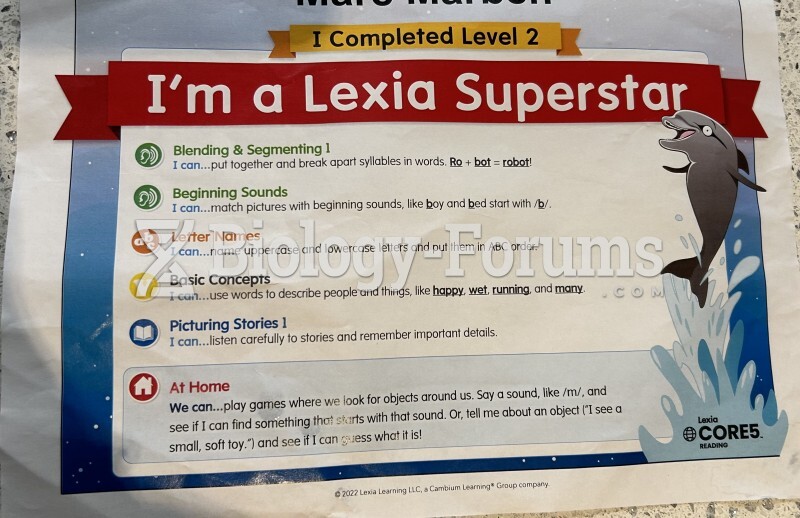|
|
|
All adults should have their cholesterol levels checked once every 5 years. During 2009–2010, 69.4% of Americans age 20 and older reported having their cholesterol checked within the last five years.
HIV testing reach is still limited. An estimated 40% of people with HIV (more than 14 million) remain undiagnosed and do not know their infection status.
Inotropic therapy does not have a role in the treatment of most heart failure patients. These drugs can make patients feel and function better but usually do not lengthen the predicted length of their lives.
Alzheimer's disease affects only about 10% of people older than 65 years of age. Most forms of decreased mental function and dementia are caused by disuse (letting the mind get lazy).
About 600,000 particles of skin are shed every hour by each human. If you live to age 70 years, you have shed 105 pounds of dead skin.
 Electrocardiography. (a) Electrodes are placed on the patient’s chest to record the electrical event
Electrocardiography. (a) Electrodes are placed on the patient’s chest to record the electrical event
 Although average brain size increases gradually though time in H. erectus, individuals with small br
Although average brain size increases gradually though time in H. erectus, individuals with small br
 The approval of a new drug is a four-stage process: (1) preclinical investigation, (2) clinical inve
The approval of a new drug is a four-stage process: (1) preclinical investigation, (2) clinical inve




